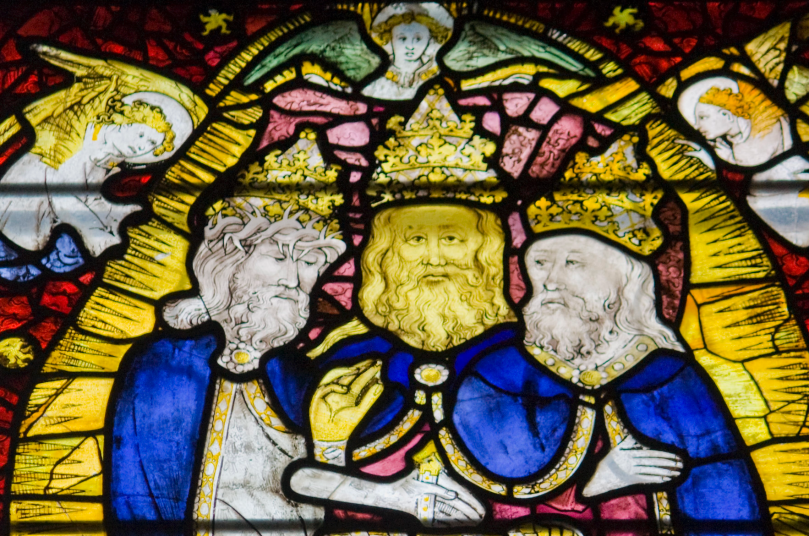What, I wonder, do we ask for in prayer? I am thinking in particular of moments when we might petition to know God more fully; more deeply; more intimately. Perhaps our wish is for only the slightest indication that God is present with us – of no more substance than the passing brush of a moth. Often we prize these glimpses and signs, feeding on them for many years after the event itself.
In characteristic style, John Donne had no truck with these modest expectations of divine encounter. In one of his sonnets Donne demands a much more forceful – even brutal – experience of God:
Batter my heart, three-person’d God, for you
As yet but knock, breathe, shine, and seek to mend;
That I may rise and stand, o’erthrow me, and bend
Your force to break, blow, burn, and make me new.
Batter My Heart John Donne 1633
It is a metaphysical poem par excellence, full of paradox, wit and irony. In the relationship between the poet and God Donne pleads to be overpowered, even referencing in the opening line that the individual soul is outnumbered by this God of three persons. It is the text used for a remarkable aria by the contemporary American composer John Adams, in his opera Doctor Atomic. The opera concerns the first test of an atom bomb, known as the ‘Trinity’ test, a designation reflecting Robert Oppenheimer’s fascination with Donne’s poetry.

Jefrey Johnson, in his book about the theology of the 17th century dean, identifies the Trinity as Donne’s seminal Christian belief. As Fred Sanders put it some years ago, having examined his poetry and sermons, this belief was centred on the concept of sacred community:
That God is a unity rather than a singularity, a communion rather than a monad. And as we gather our scattered selves into the act of worshiping the triune God, we become more unified, more focused, more truly ourselves.
Fred Sanders: Today is John Donne’s Birthday, blog 2009
The visceral tone of Batter My Heart reflects Donne’s passionate desire to surrender the whole of himself to God. This is no insipid theology of cautious approach, but a demand to be broken, blinded and burnt in order to be restored; to see aright, and emerge, phoenix like, as a new creation. Left to the intellect alone the Trinity might remain a stumbling block and cause of confusion, but when engaged as God-in-community Donne sees the doctrine as a vibrant expression of sacred relationship. Perhaps it is for this reason that in his Litany Donne recognises fundamental differences between an approach to the Trinity that draws on philosophy and one where faith is placed at the heart of things:
O blessed glorious Trinity,
Donne, John. Poems of John Donne. vol I. E. K. Chambers, ed. London: Lawrence & Bullen, 1896. 174-187.
Bones to philosophy, but milk to faith,
Which, as wise serpents, diversely
Most slipperiness, yet most entanglings hath,
As you distinguish’d, undistinct,
By power, love, knowledge be,
Give me a such self different instinct,
Of these let all me elemented be,
Of power, to love, to know you unnumbered three.
Philosophers will ponder the meaning and nature of the Trinity until kingdom come. The Trinity remains, for people of faith, a vibrant community of persons, where equality of status is lived in a dynamic relationship of power, love and knowledge. If in Christ we are born again then it is in the Trinity that we learn to grow again, nurtured by the milk of a faith flowing from the God who shines upon us, and seeks to mend all that is done amiss.
Feature image is the Trinity depicted in stained glass at York Minster. Photo by Lawrence OP
